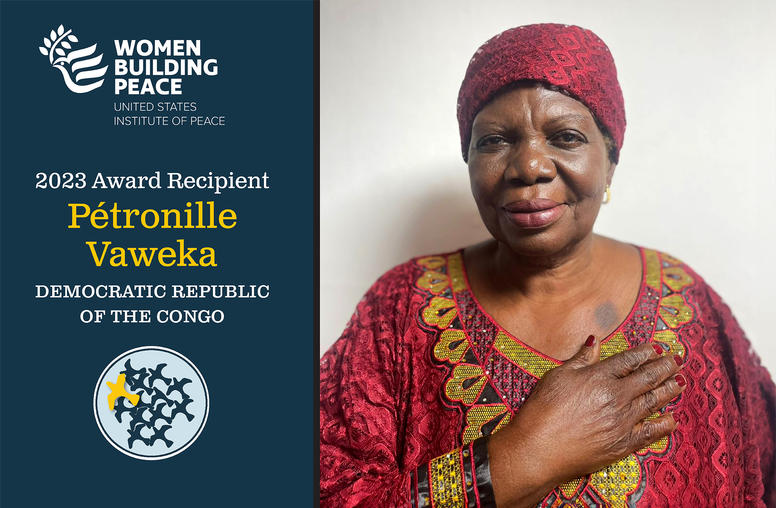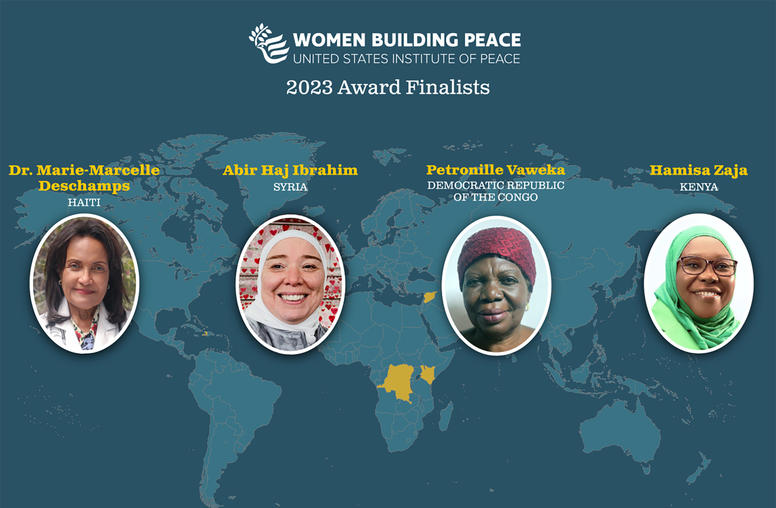USIP Staff Comment on Upcoming Burma Visit by President Obama
For Immediate Release, November 14, 2012
Contact: Allison Sturma, 202-429-4725
(Washington) – Experts from the United States Institute of Peace (USIP) are closely watching President Obama’s historic trip to Burma as the first sitting American president to visit the southeast Asian country. Over the last year, USIP, along with lead partner Asia Society and Blue Moon Fund, has worked with Burmese stakeholders to determine how the Institute’s expertise can support the democratic transition there, especially on rule of law and religion issues. Colette Rausch and Susan Hayward have participated in the assessment both in Washington and in Burma. They are available for comment on the significance of President Obama’s upcoming trip.
Rausch, director of the Rule of Law Center and Burma team lead, commented that:
The President's upcoming trip to Burma will help highlight the critical role rule of law plays in the transition to democratic governance. The rule of law is the cornerstone from which democratic principles are based and without which such transitions are impossible. It is the fair and equitable application of the principles of rule of law that assures citizens of every stature and status equal protection and participation in the societies in which they reside.
Hayward, senior program officer with the Religion and Peacemaking Center, adds that the trip will be an opportunity to highlight areas of concern:
Since June, there has been a rise in violent conflict in Western Burma that pits Rohingya Muslims against Rakhine Buddhists. During my visit to Burma in August many people were concerned that this conflict would spread and deepen; their concerns in recent weeks seem to have been well placed. President Obama could use this visit to discuss with Burma’s top leadership the situation in Rakhine, the political, legal, and economic issues driving it, and how to support those local religious and community leaders who are trying to de-escalate the situation and provide relief to victims of the violence on an interfaith basis. Addressing this conflict situation constructively, expediently, and expansively could have far wider implications for the myriad of armed conflicts on Burma’s periphery, and peace as a whole in the country.
Contact Information
Colette Rausch
202-429-3860
crausch@usip.org
Susan Hayward
shayward@usip.org
Additional Resources
- Burma/Myanmar in Transition: A Discussion with Aung San Suu Kyi
On September 18, 2012, USIP hosted Nobel Peace Laureate Aung San Suu Kyi, in partnership with The Asia Society, for her first public event in the United States in more than 20 years. The video and summary are available online. - Burma Dialogue Involving USIP, Partners to Continue
This July 2012 news feature describes the ongoing Track II-style dialogue organized by the Asia Society and USIP involving specialists from the United States and Burma to explore opportunities to advance U.S.–Burmese relations.
###
The United States Institute of Peace is an independent, nonpartisan conflict management center created by Congress to prevent and mitigate international conflict without resorting to violence. USIP saves lives, increases the government’s ability to deal with conflicts before they escalate, reduces government costs, and enhances national security. USIP is headquartered in Washington, DC. To learn more visit www.usip.org.

